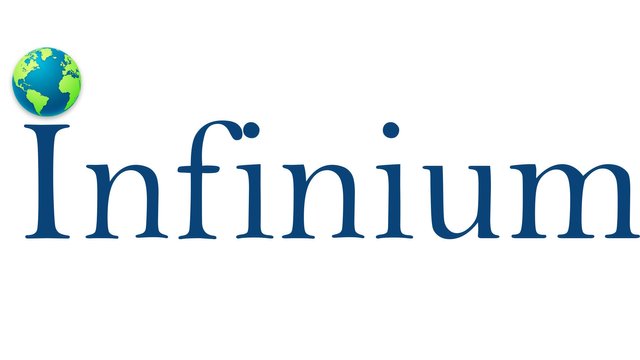Introduction

The therapeutic bed market is witnessing substantial growth driven by factors such as the rising prevalence of chronic diseases, an aging global population, and increasing awareness about the importance of proper sleep for overall health and well-being. Therapeutic beds, designed to provide enhanced comfort, support, and specialized features for patients, are becoming increasingly popular in both healthcare settings and home care environments. This market research report provides an in-depth analysis of the therapeutic bed market, exploring key market dynamics, regional trends, market segmentation, competitive landscape, and future outlook.
Market Dynamics
Drivers
Rising Prevalence of Chronic Diseases: The increasing incidence of chronic conditions such as diabetes, cardiovascular diseases, and obesity necessitates prolonged bed rest and specialized bedding solutions. Therapeutic beds offer features like pressure relief and adjustable settings, which are essential for patient care in such conditions.
Aging Population: As the global population ages, there is a growing demand for medical and healthcare solutions that cater to the elderly. Therapeutic beds provide the necessary support and comfort required for elderly patients, thereby driving market growth.
Technological Advancements: Innovations in bed technology, such as the development of smart beds with integrated health monitoring systems, pressure-relief mattresses, and adjustable bed frames, are attracting consumers and healthcare providers alike.
Challenges
High Cost: The cost of therapeutic beds is relatively high, which can be a significant barrier to adoption, particularly in developing regions where healthcare budgets are constrained.
Lack of Awareness: In some regions, there is a lack of awareness about the benefits of therapeutic beds, limiting market penetration. Efforts to educate consumers and healthcare providers about these benefits are crucial.
Regulatory Hurdles: The therapeutic bed market is subject to stringent regulations and standards, which can pose challenges for manufacturers in terms of compliance and certification processes.
Opportunities
Home Healthcare Demand: The increasing preference for home healthcare solutions presents significant opportunities for market growth. Therapeutic beds designed for home use are becoming more popular as patients seek comfort and convenience in their homes.
Technological Innovations: Continuous advancements in bed technology offer opportunities for product differentiation and enhanced functionality, which can drive market growth.
Emerging Markets: Expanding into emerging markets with improving healthcare infrastructure and growing healthcare awareness offers substantial growth prospects for market players.
Sample Pages of Report: https://www.infiniumglobalresearch.com/reports/sample-request/946
Regional Analysis
The therapeutic bed market exhibits diverse trends and growth patterns across different regions:
North America: North America leads the therapeutic bed market, driven by a well-established healthcare infrastructure, high consumer awareness, and significant healthcare expenditure. The presence of major market players and continuous technological advancements also contribute to the region's dominance.
Europe: Europe holds a substantial market share due to its aging population, strong healthcare policies, and high adoption rates of advanced medical technologies. Countries like Germany, France, and the UK are key contributors to the market growth in this region.
Asia-Pacific: The Asia-Pacific region is expected to witness the fastest growth in the therapeutic bed market. Factors such as improving healthcare facilities, increasing investments in the healthcare sector, and rising awareness about therapeutic beds are driving this growth. Countries like China, India, and Japan are at the forefront of this regional expansion.
Latin America: Latin America presents emerging opportunities for the therapeutic bed market, supported by growing healthcare awareness and economic development. Countries like Brazil and Mexico are key markets in this region.
Middle East & Africa: The Middle East & Africa region is also showing potential for market growth, with increasing investments in healthcare infrastructure and rising awareness about advanced medical solutions.
Market Segmentation
The therapeutic bed market can be segmented based on product type, end-user, and distribution channel:
By Product Type:
Standard Beds
Bariatric Beds
Pediatric Beds
Others (e.g., adjustable beds, low air loss beds)
By End-User:
Hospitals
Nursing Homes
Home Care Settings
Others (e.g., rehabilitation centers, long-term care facilities)
By Distribution Channel:
Direct Sales
Retail Stores
Online Platforms
Competitive Landscape
Market Share of Large Players: Large players dominate the therapeutic bed market, holding significant market shares due to their extensive distribution networks, strong brand recognition, and wide product portfolios.
Price Control: Big players often have the power to influence market prices, leveraging their economies of scale and market position. However, competitive pricing strategies are also employed by mid-size and small companies to attract customers.
Competition from Small and Mid-Size Companies: While large companies dominate the market, small and mid-size companies challenge them by offering innovative products, competitive pricing, and personalized customer service, particularly in domestic markets.
Key Players: Major players in the therapeutic bed market include Hill-Rom Holdings, Inc., Stryker Corporation, Invacare Corporation, Medline Industries, Inc., and Drive DeVilbiss Healthcare.
Report Overview: https://www.infiniumglobalresearch.com/reports/global-therapeutic-bed-market
Future Outlook
New Product Development: New product development is crucial for companies to maintain competitiveness and address evolving consumer needs. Innovations in therapeutic bed technology, such as smart beds with integrated health monitoring systems and advanced pressure-relief features, are expected to drive future market growth. Companies that invest in research and development to introduce cutting-edge products will likely gain a competitive edge.
Targeting Youngsters: While the primary target demographic for therapeutic beds has traditionally been older adults, companies are increasingly recognizing the potential of targeting younger consumers who are becoming more health-conscious and willing to invest in wellness products. Marketing strategies that highlight the benefits of therapeutic beds for improved sleep quality, recovery from sports injuries, and overall health can attract a younger audience.
Conclusion
The therapeutic bed market is poised for continued growth, driven by technological advancements, demographic shifts, and increasing health awareness. Companies that can effectively navigate the challenges and capitalize on emerging opportunities will be well-positioned to thrive in this dynamic market. The future of therapeutic beds lies in continuous innovation, targeted marketing strategies, and expanding reach into untapped regions. As the market evolves, staying attuned to consumer needs and technological advancements will be key to sustained success.
cGPT spam.
Downvoting a post can decrease pending rewards and make it less visible. Common reasons:
Submit